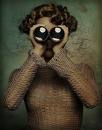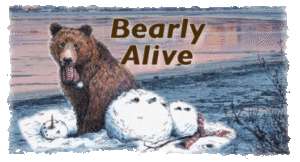By John Gilstrap
In the interest of full disclosure, I must confess that today’s post start as a response to Michelle’s post from yesterday regarding the best and worse writing advice we’ve received. Michelle pretty much nailed everything on the head, but there’s one more that plays to the heart of this whole author-as-marketer thing.
When my first book, Nathan’s Run, was published in 1996, the Internet as far as I knew it, consisted of the AOL Writer’s Club—singularly the best virtual writers’ hangout I’ve ever been affiliated with. Those were the days when you paid for online time by the hour. Between the newness of my writing career, the newness of the technology, and the overall coolness factor of it all, I spent a lot of time with my friends in the Writer’s Club. Enough time, in fact, that it prompted my editor at the time to issue the following bit of advice:
Don’t let being a writer interfere with actually writing.
Writing the next book is the single best thing you can do to gain support for the previous book. After a while, an author’s body of work becomes sort of a self-sustaining marketing tool. The poster child my editor named as the antithesis of this advice was Truman Capote, whose writing quality was, he believed and I agree, inversely proportional to his fame.
This advice resonates loudly with me every year when conference season rolls around. Properly selected and managed, I think that conferences are the single greatest marketing tool available to writers—both budding and established. The real work is done in the bar, whether you’re a drinker or a teetotaler. You just need to screw up the courage to talk to people. It’s not the place to pitch your books, but it is the place to meet and impress fans and industry people alike.
Even though I recognize the value of conferences, it would be entirely possible for an author to spend 75% of his annual allotment of weekends traveling the country and talking about himself. There comes a point of diminishing returns. I have my favorites—ThrillerFest, Bouchercon and Magna Cum Murder—which I try to make every year, and I might throw in one or two more if I’m invited or if it’s close to home, but that’s it. It has to be.
Standard book signings are to me a waste of time. Ditto book tours.
Facebook and Twitter are great as tools, but I believe they work best as subliminal pleas for business. If you post and say something smart, I might try your product. If you send me a direct request, the likelihood drops dramatically. For the life of me, I don’t understand why writers flog their work on writers’ boards. One or two posts per day on social media are ideal because I don’t think anyone does more than two things per day that are interesting enough to tweet about.
When all is said and done, I think the truth about effective book marketing is harsh news for new writers: You’ve got to build a fan base, and the only way to do that is to churn out a consistent stream of good product that is appropriately priced. Every minute of self-promotion that takes away from your ability to churn out at least one book per year (but probably no more than two), is doing so little good as to perhaps be doing harm.












